Bhopal: From the ‘Avocado King’ in Bhopal to the global giant Westfalia Fruit in Hyderabad, from farmers in Coorg and Ooty to chefs in Mumbai and Delhi—everyone is eagerly waiting for December. The month marks a milestone for the ambitious avocado saplings that journeyed all the way from South Africa, Israel, and beyond to India. They will finally be ready to bear fruit.
For the very first time, India will grow butter-rich Hass avocados, the kind usually found in Peru and Australia.
“I am getting goosebumps thinking of finally seeing my sweat turning into sweet. For my wife and I, it’s like watching our baby grow,” said Mahantesh B Patil, a 46-year-old farmer associated with Westfalia Fruit, the biggest importers of avocados in India.
But, the story of the Indian avocado doesn’t begin here. A watery, green local variety of avocado, famous as ‘butter fruit’ among local people, has been grown for generations in Southern India. It was loved by few, ignored by most. It just wasn’t buttery enough to take off. Then came the pandemic and the rise of Instagram health gurus. Suddenly, avocado became a status symbol. The North discovered “avocado toast” and Bollywood stars were making “green smoothies.” Yet, it remained a premium fruit. Those who could afford it, shelled out money on Peruvian and African avocados, and for others, the water rich Indian avocados were the only option. Then, in November 2021, Tanzanian avocados, imported by Westfalia Fruit, arrived in India
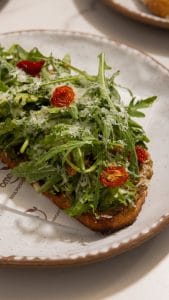
From posh restaurants to street vendors, everyone wanted in. Avocado in dips, chaats, bhapa doi, pani puris and even dosas. India’s appetite for avocados multiplied. But, the demand within the country is met largely by imports, and that number, market players say, is doubling every year.
According to Avocado import statistics for India, Avocado imports into India reached 1,607 shipments between March 2023 and February 2024, an 11 per cent increase from the previous year.
The Indian avocado didn’t have the snob value. The imported ones are expensive. That’s where the December crop comes in. A sapling takes four years to bear fruit.
This growing demand has sparked a rush for ‘green gold’ among some Indian farmers. Patil, who serves as the Asia-Africa Vice President at Omnispace, a US-based firm, is one of them.
Patil decided to move away from his long-standing coffee plantation of Arabica, Robusta, and Coorg Mandarin four years ago. He replaced them with 350 avocado saplings, which are now entering their fifth year, spread across two and a half acres of land. Now, he plans to sell his harvest at Rs 450 per kilogram. The imported ones retail at Rs 900 per kg.
“An avocado tree can live for 30 to 40 years, while Coorg Mandarins yield fruit for only 15 to 20 years,” Patil said.
“The first five to six years are demanding, avocados are delicate, but once they stabilise, maintenance is minimal. The returns, however, are higher and they last much longer.”
Also read: Tulsi to tomatoes — Delhi balconies are the site of a growing green revolution
Avocado in bhapa doi, dosa, chaat…
When Chef Nishant Chaubey took on a wedding catering order in Lucknow this month, he expected the usual spread of kebabs and biryani. Instead, the bride and groom handed him a surprise: An entire menu built around avocados.
“There’s avocado in everything—salads, soups, tikkas, chaats, starters… you name it,” he laughed over a phone call.
“I’m making a ‘Pull Me Up Avocado Tamatar ki Chaat’, a nasi goreng with avocado, and even an avocado tikki instead of the usual potato one. These days, I get requests for avocado dishes everywhere.”
Chaubey, who was one of the chefs at Anant Ambani’s wedding, revealed that one of his most popular dishes at the event was avocados stuffed with goat cheese mousse and chilli jam.
The chef says he is “super excited” about finally having access to butter-rich avocados that are grown in India. He recalls traveling to Kodaikanal and parts of the Northeast to source local avocados, but consistency was always an issue.
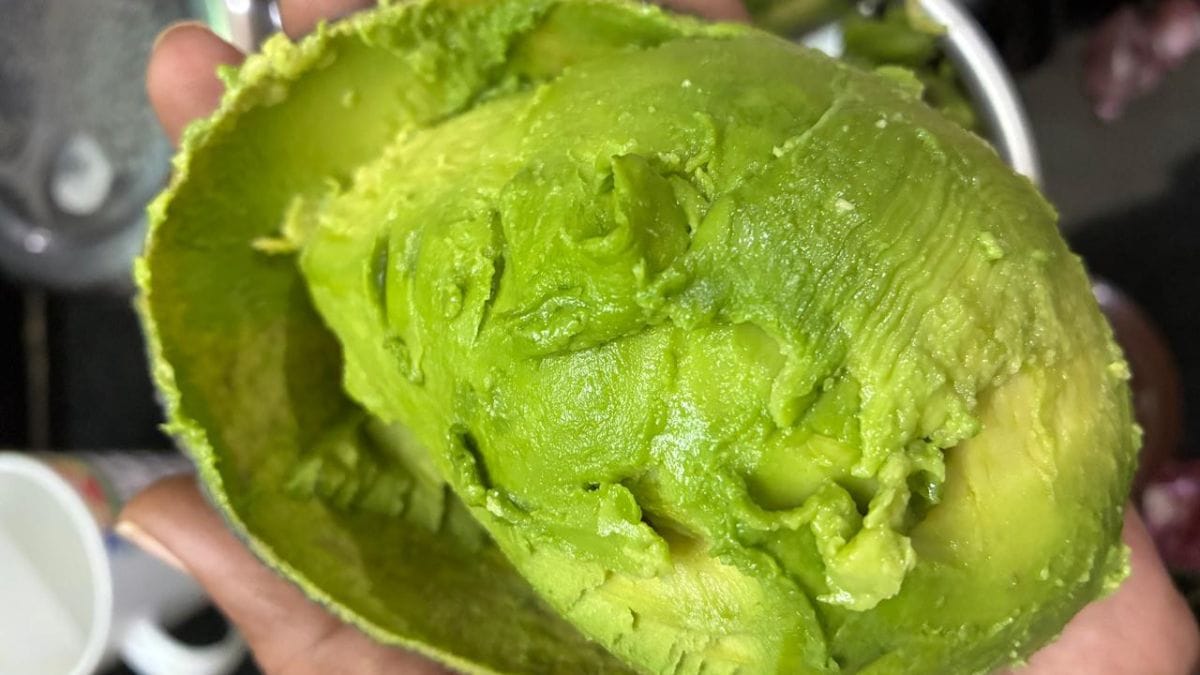
“Quality is a big problem in local varieties. Plus, those varieties have too much water, so they can’t hold the shape of the dish, let’s say a tikki, at high temperatures. They work fine for shakes and smoothies, but not for cooking,” said the chef, who has spent over a decade experimenting with avocados.
For chefs like him, the only reliable option used to be the imported ones from Peru or South Africa, which hold their structure even at 500°C. But, they are expensive.
Now, with India’s first batch of high-butter-content avocados ready, Chef Chaubey calls it a game-changer.
“This is just the beginning. In the coming years, production will increase significantly, bringing down the costs more and making premium avocados accessible to more people,” he said. “It’s also better for the planet as well, less carbon footprint, more sustainability.”
Also read: Bananas are India’s horticulture success story. Time to up the game in international markets
Old recipes in new places
At Rajan and Deepika Sethi’s vegetarian restaurant, Omo, in Gurugram, avocado dosas have become a hit, especially with Gen Z diners.
“They want avocado in everything,” laughed Chetna Chopra, Culinary Director at Omo. While avocado toast remains a crowd favourite, Chopra decided to experiment a month and a half ago by introducing avocado dosa to the menu.
“In just over a month, we have sold nearly 500 avocado dosas, purely through word of mouth,” she said. “We even have regulars who come back just for that dish.”
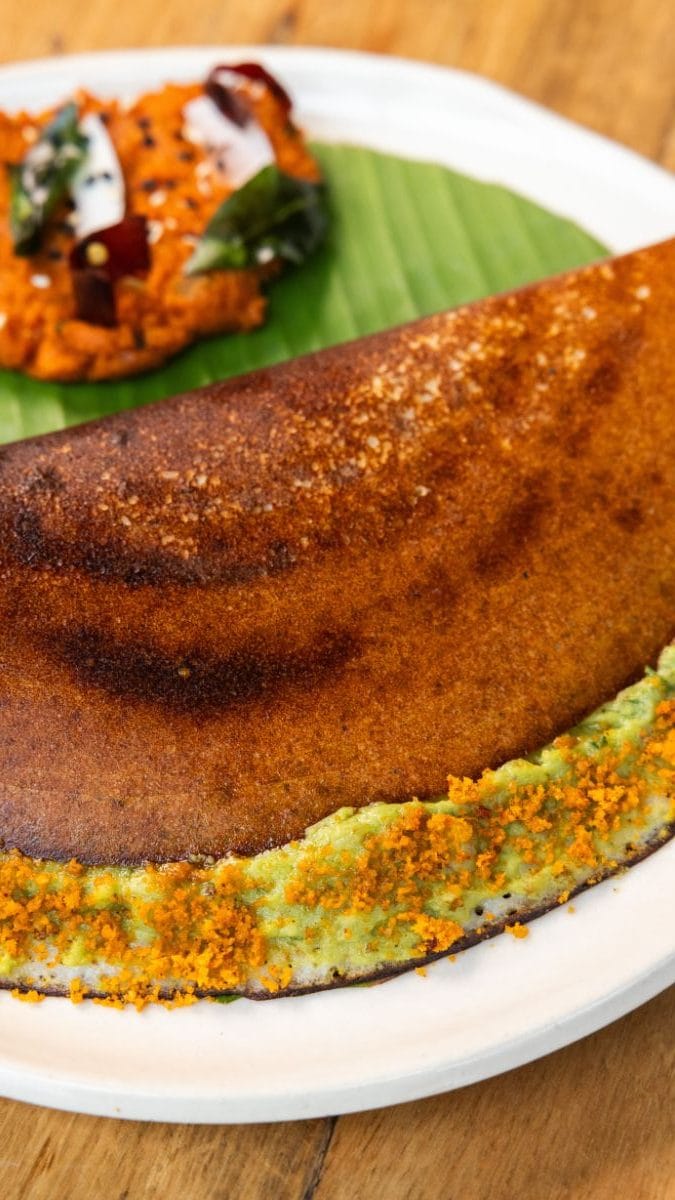
The inspiration for this creative twist came from a memory a decade ago, when Chopra was traveling through Tamil Nadu.
“I came across a woman in Vattakanal selling avocado-stuffed dosas from a small thela. Her family owned a tiny avocado farm, and it was such a beautiful, local idea especially in a touristy hill town,” she recalled.
When updating Omo’s menu two months ago, that memory resurfaced.
“Both dosa and avocado have South Indian roots, therefore, it didn’t really shock customers. But, still, it was a bit of a gamble, and it paid off,” she said.
While today’s chefs have turned the once-bland avocado into a gourmet favorite, it wasn’t always this glamorous. Earlier, the fruit was often eaten simply with a sprinkle of sugar. And, its real value lay elsewhere.
“In many parts of South India, the local cosmetic industry was the main buyer of butter fruit,” said Muralidhara BM, head of the Central Horticultural Experiment Station in Chettalli, Coorg.
“It was widely used to make soaps, shampoos, and creams. For farmers, the cosmetic sector brought in far more income than direct consumer sales.”
Also read: Cricket and Australian avocados have one thing in common – Brett Lee
India’s avocado story
Muralidhara, a fruit scientist who holds a PhD on avocados, said that Indians have traditionally preferred sweet or tangy fruits, which is why they dismissed the “tasteless”, “bland” and “boring” avocado.
For generations, only the green-skinned West Indian varieties were grown by a handful of farmers in the hilly regions of the Western Ghats. These had low fat content and didn’t last long compared to the globally popular Hass variety.
Muralidhara said that the Hass avocado remains the most in-demand variety because it stays fresh for up to 10–15 days after harvesting, and even longer when refrigerated, making it ideal for export.
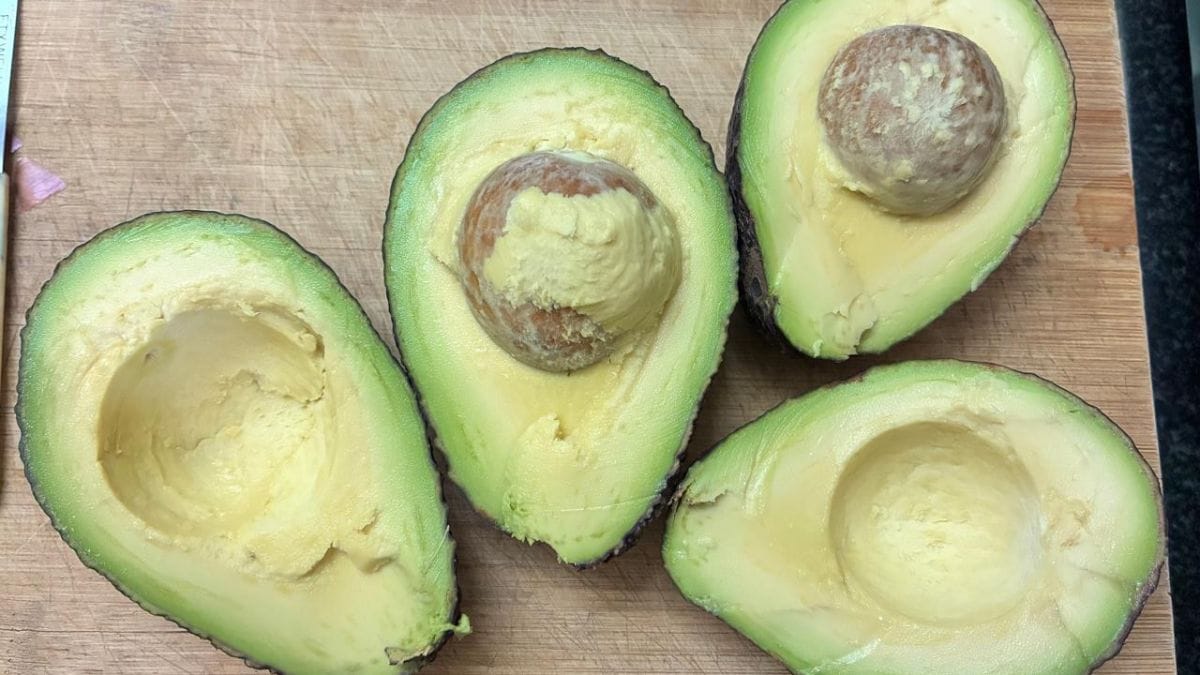
In India, around 90 per cent of avocados are still imported, mostly from Tanzania, as imports from there are duty-free, along with smaller quantities from Australia, Peru and Kenya. But that is all set to change.
“The first Hass avocado sapling was brought to India in 2017. Until 2018–19, there were hardly any large-scale avocado farmers,” said Niteen Palliwal, General Manager at Westfalia Fruit India, the country’s largest importer of Hass avocados.
“We began by collaborating with coffee and tea growers in Coorg, Kodaikanal, and Ooty since avocado plants thrive in those cooler, high-altitude regions.”
The South African agribusiness giant, one of the world’s leading avocado producers and exporters, established a 50-acre nursery and demonstration farm in Coorg in 2020 to kickstart India’s local Hass cultivation. The nursery now produces over 30,000 saplings annually. Westfalia has also partnered with Indian farmers to reduce the country’s dependence on imported avocados.
And, this December onwards, their first commercial batch of Hass avocado grown in India will be out in the market.
India’s avocado king
But Westfalia faces competition from homegrown talent. India’s very own “Avocado King”, Harshit Godha from Bhopal.
Farmers from across India visit his farm, a 15-minute drive from the airport, where he cultivates around 1,800 avocado trees and runs a nursery with 4,000 saplings.
A BBA graduate from Bath University, England, Godha’s Instagram bio reads “Probably the most handsome avocado farmer in the world.”
While his first commercial harvest, like the Westfalia Fruit, is set to hit the market in the coming season, his popularity as an educator and influencer has already made him a well-known name among farmers and consumers. Godha has a following of over 50k on Instagram and 25k subscribers on YouTube.
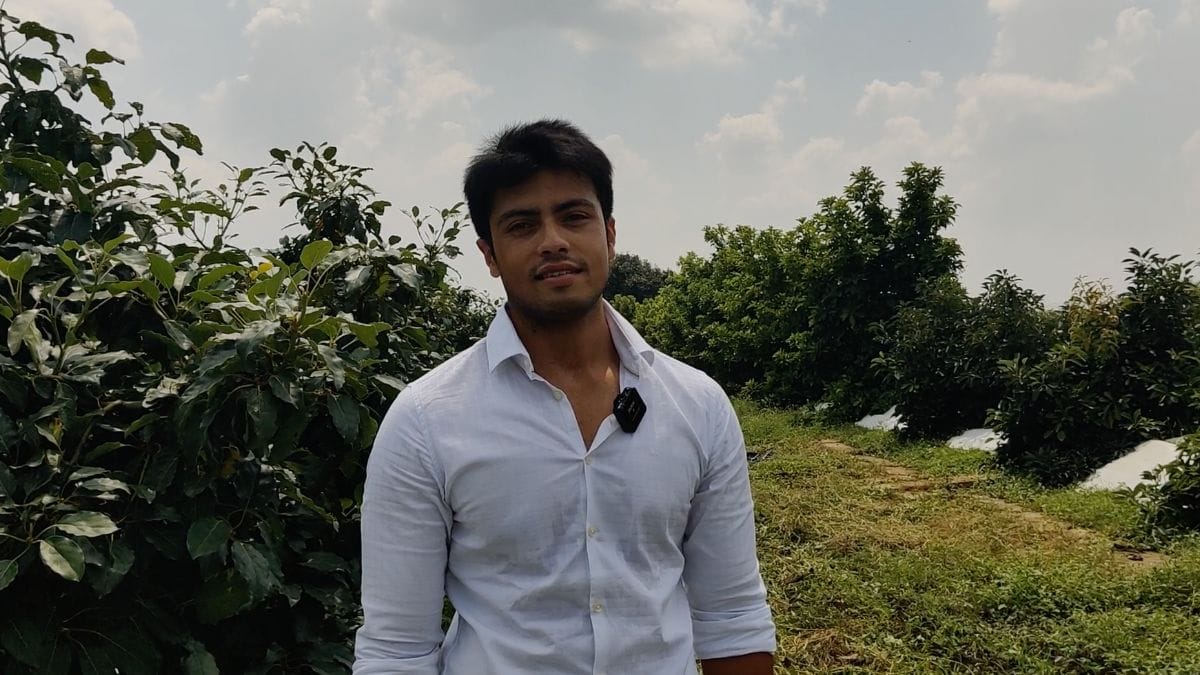
“I used my marketing background to build awareness,” he said. “I make videos explaining not just how to grow avocados but also how to eat them and understand their health benefits,” he added. His farm has even become a learning hub for botany students from across the city.
Godha explained that while the Hass variety is ideal for cooler climates, it struggles to survive temperatures above 35°C. Hence, he also began promoting heat-tolerant varieties such as Pinkerton and Ettinger, after spending months in Israel receiving hands-on training in avocado farming. Today, he imports rootstocks from Israel and has already sold over 15,000 plants to farmers from Gujarat to Arunachal Pradesh.
“Within a year, I realised that this is a profitable crop and I don’t gatekeep secrets. Farmers visit my farm, and it’s free of cost. The only amount they pay is the price of the plant,” Godha said. His success in the sapling business has brought him both financial growth and a strong social media following.
“Now that my first crop is ready for market, I don’t need to do much marketing,” he smiled. “People already know me, they’re actually waiting for me to start selling.”
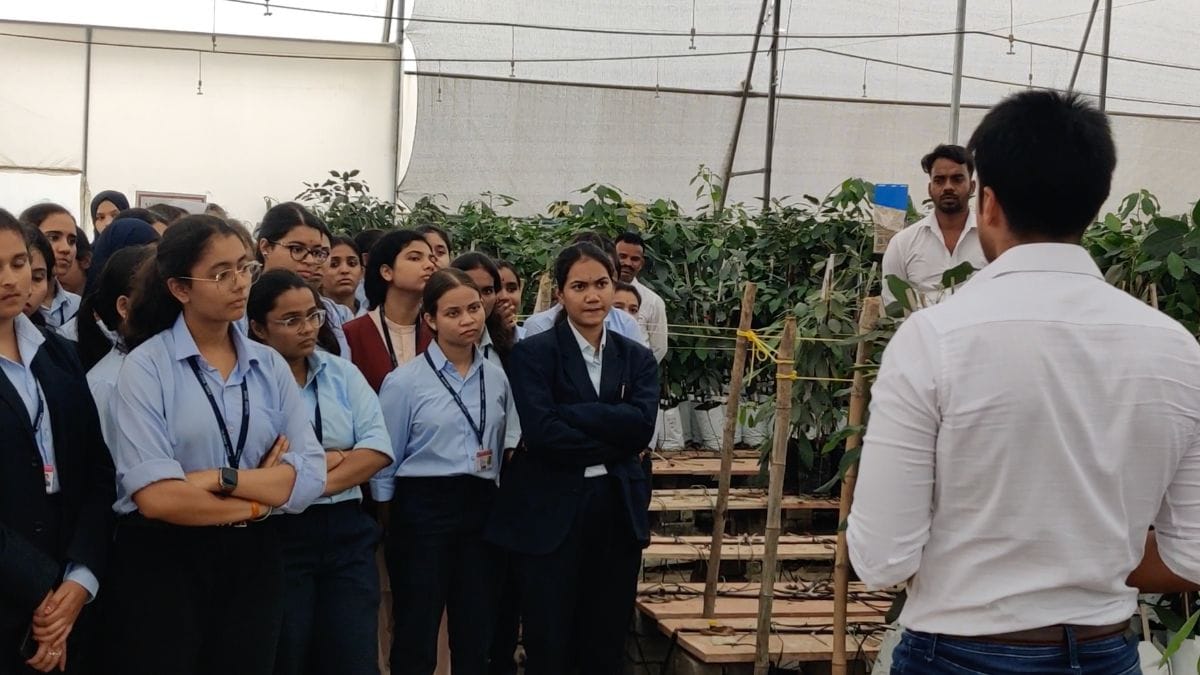
The great avocado gamble
From the hills of Ooty to the farms of Ahmedabad and the valleys of Itanagar, farmers are putting their faith and their future into a fruit once considered “foreign.” They are swapping the coffee, oranges, and even tobacco with avocado plants, in hope to become the next ‘avocado king’ of India.
For decades, the Srinivasan family in Ooty grew coffee, pepper, and oranges on their 15-acre plantation. But as returns dropped, brothers Rajesh and Arvind Srinivasan, both in their 30s, decided to experiment.
“In 2023, we planted 600 avocado saplings—half Hass, half Pinkerton,” Rajesh said. “At first, our workers laughed. They said ‘people here only eat avocados with sugar.’ But now, chefs from Coimbatore and Chennai call asking when we’ll start selling.”
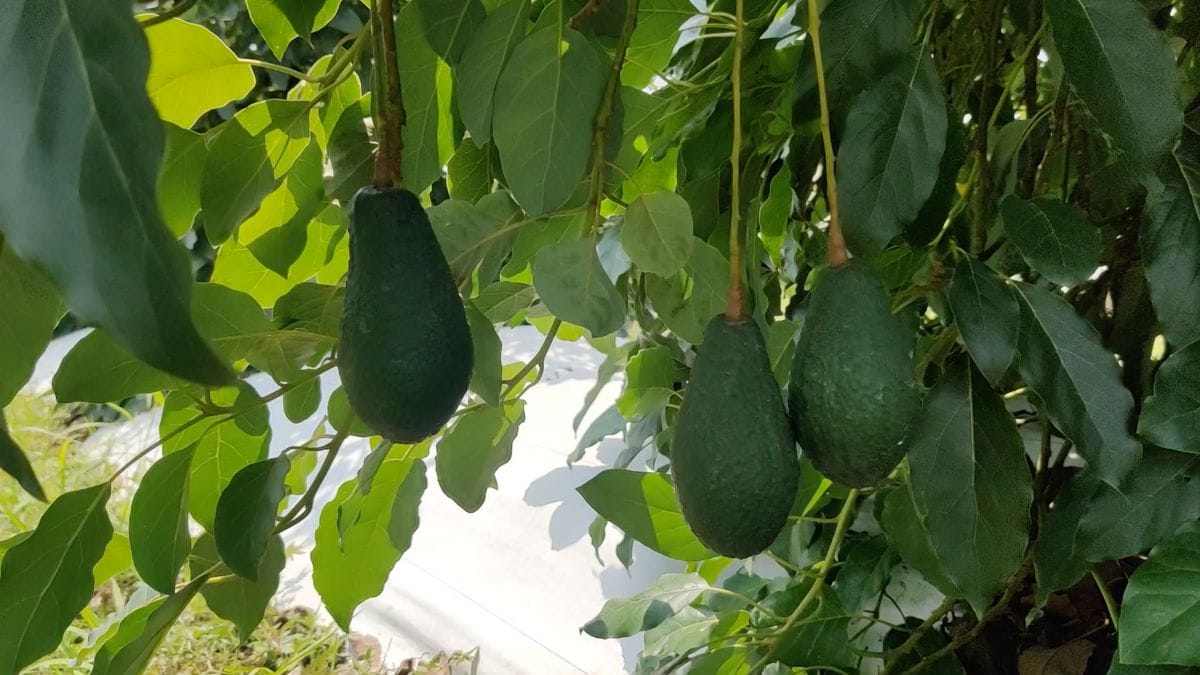
The brothers have trained with horticulture experts from the Chettalli station. The station is Muralidhara BM’s horticulture centre. They’ve even visited Westfalia’s nursery in Coorg to understand pruning, pollination, and soil management. Their first small harvest this year gave them confidence.
“Avocado might just be the new coffee for the Nilgiris,” Arvind said.
Forty-two-year-old Vikramsinh Solanki shifted from tobacco to avocado purely because of the rising horticulture trend.
“Everyone is heading in that direction. The returns also look promising. And, the demand is such that we wouldn’t have to think about competition for at least 15-20 years,” said Solanki, who visited Godha’s nursery last year and bought 380 plants, paying Rs 2500 each.
He has a 8-acre tobacco farm in Anand, 63km from Ahmedabad. He has converted 1.5 acres into an avocado orchard.
“Gradually, in the next two to three years, I will convert it entirely,” he said.
In the green valleys near Itanagar, Arunachal Pradesh, Tashi Ngemu, 39, is known for his innovation. His family had grown pineapples and oranges for generations, but Tashi wanted to diversify.
“Transport costs for fruits were high, and prices were unstable,” he said. “So, when I heard about avocado’s long shelf life and high value, I decided to try it.”
Two years ago, Tashi planted 150 Hass saplings, bought from Godha. Despite the challenging terrain, the trees have adapted well.
“The first flowers came this summer. If the yield is good, I’ll expand to 1,000 trees next year,” he said.
“We are not thinking about competition because the demand is huge. Fifteen years from now, people won’t be importing avocados to India, they will be importing them from India.”
(Edited by Theres Sudeep)






